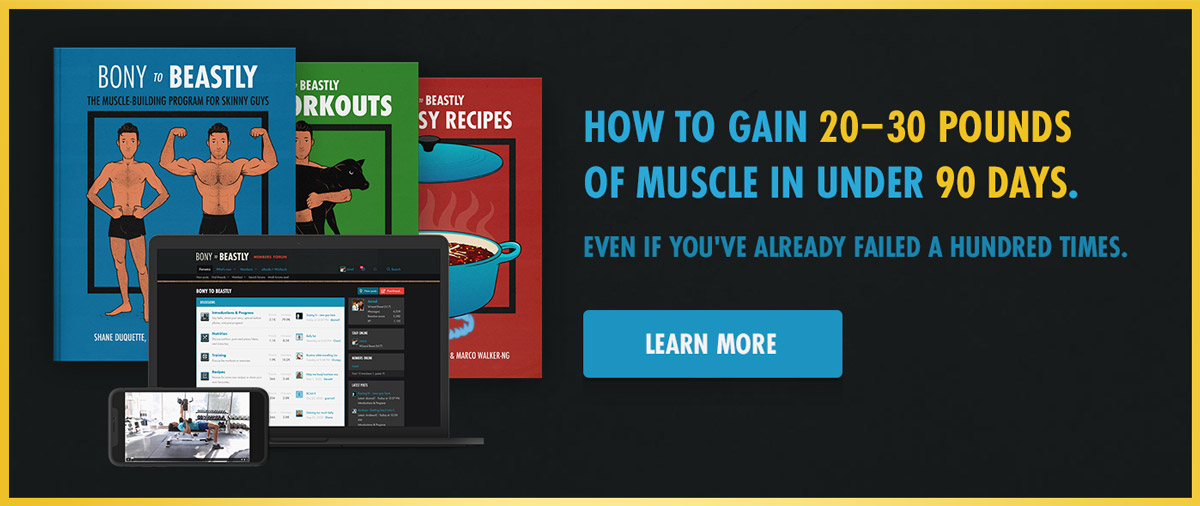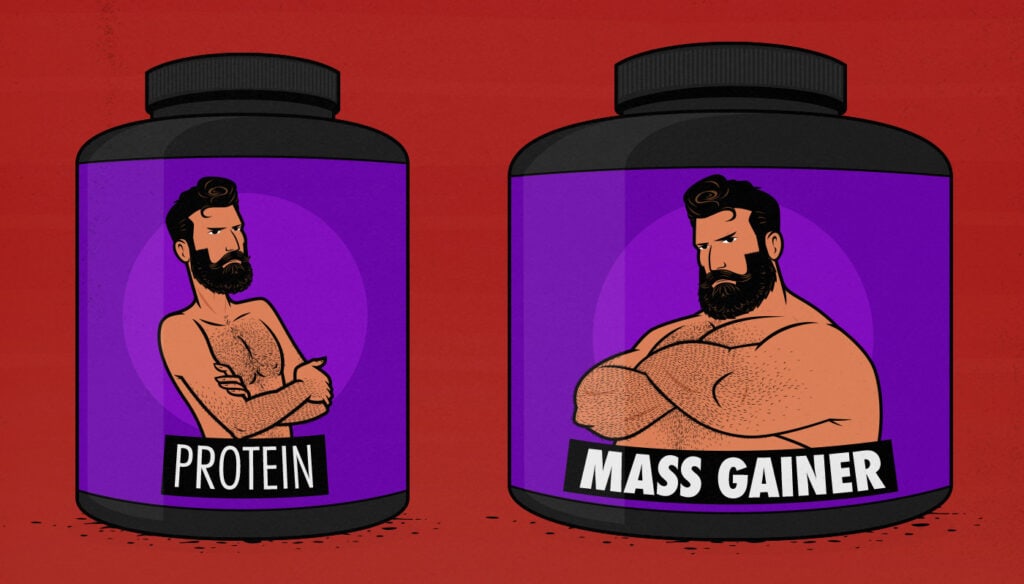
Will Mass Gainers Make You Fat?
Mass gainers are near and dear to my heart. They’re the only supplement on the entire supplement market that’s designed specifically for skinny people who are trying to gain weight. For a naturally skinny dude like me, sick of drowning in an ocean of fat-loss supplements I couldn’t care less about, that was a big deal.
I find the marketing for mass gainers appealing, too. Instead of needing to force down an extra meal, all we have to do is drink this high-calorie, high-carb, high-protein shake that’s specifically designed to help us pack on muscle quickly and leanly. No cooking, no cleaning, no chewing, and no eating. That’s pretty tempting!
On the other hand, mass gainers are packed full of cheap, highly processed carbs. It’s like cake mix with a scoop of protein powder tossed in. It’s processed food. Won’t that make us fat?
Let’s dive into it.
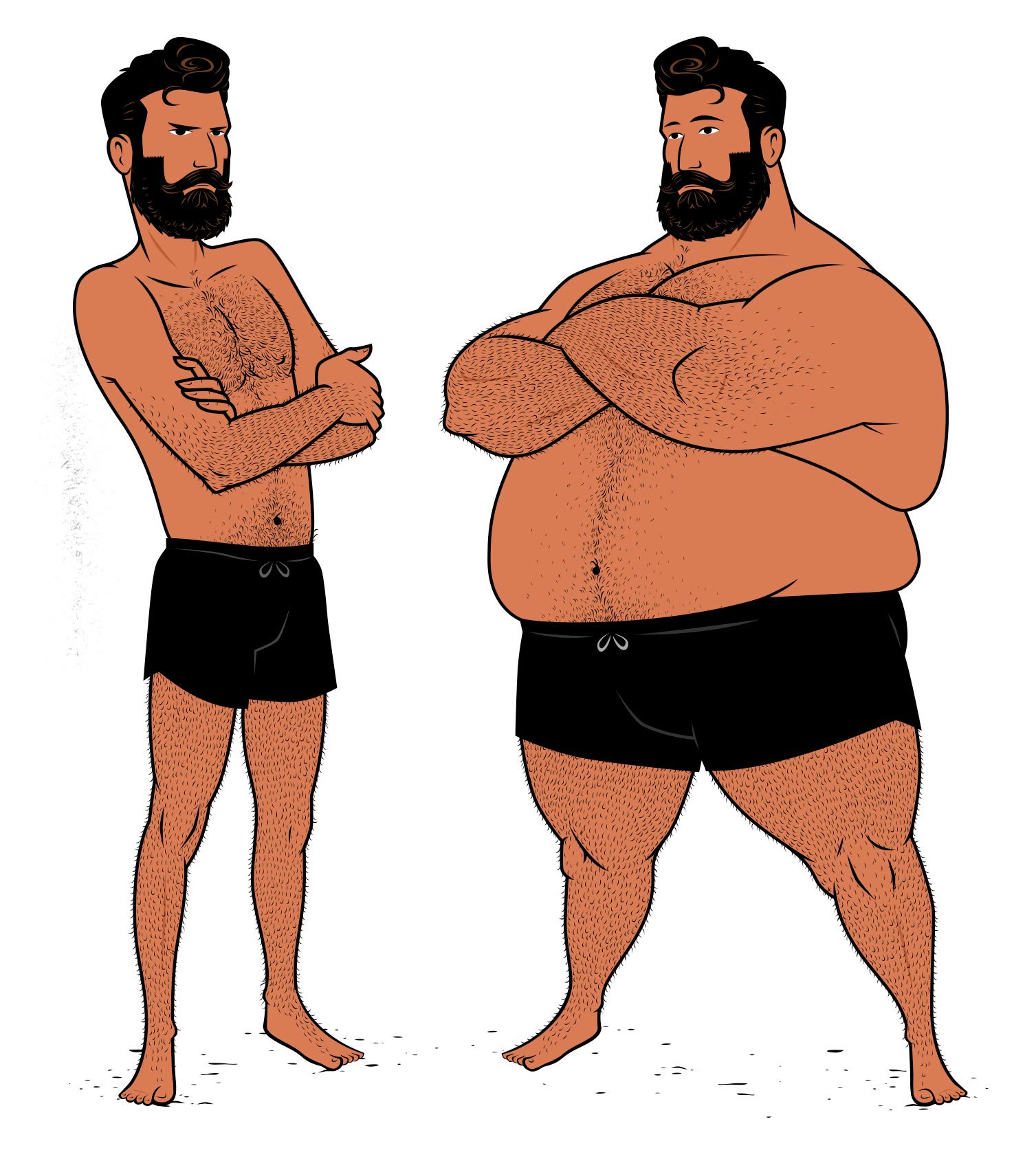
Video Version
If you’d rather watch than read, I made a video version of this article, too:
What Are Mass Gainers?
So, first of all, the main ingredient in mass gainers is a starchy carb powder, such as maltodextrin, waximaize, or powdered oats. That’s where around 80% of the calories come from. Those powders are packaged up with some protein powder, vitamins, minerals, sweeteners, and flavours.
Different brands have different macronutrients and serving sizes, but it’s typical to get something like 250 grams of carbs, 50 grams of protein, 5 grams of fat, and maybe 1,250 calories overall. The vitamins and minerals are similar to what you’d get in a multivitamin, and it’s debatable whether they actually help with anything (especially when compared to the benefits of eating whole foods).
The idea is that you’d eat a good diet, then supplement it with these mass gainer shakes, using them to drive you into a calorie surplus.
Do Mass Gainers Cause Fat Gain?
Mass gainers actually perform pretty well in the research. They seem to be pretty good at fuelling muscle growth without causing an excessive amount of fat gain, at least when used in moderation.
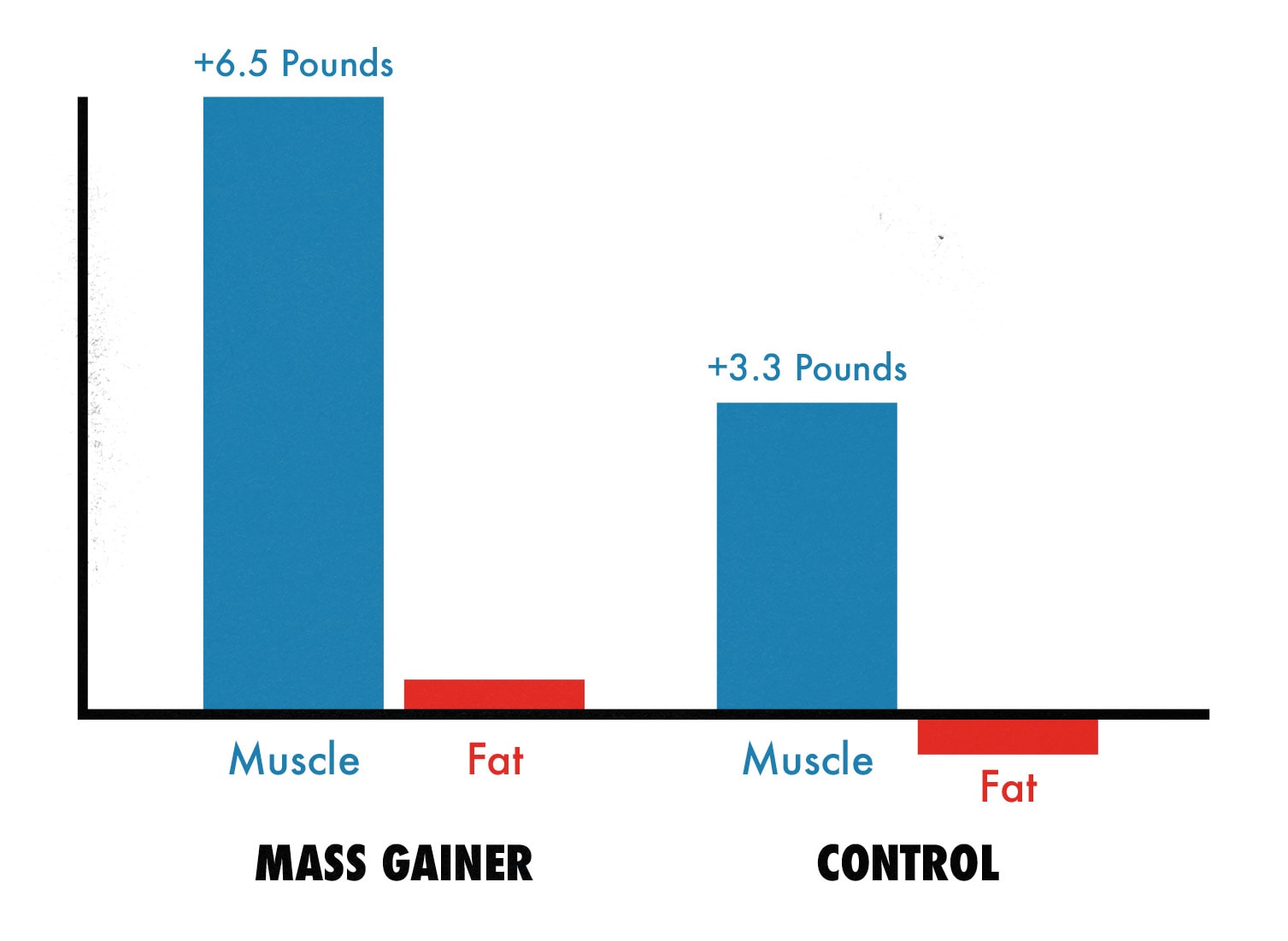
For example, in this study, the participants who were given a mass gainer gained nearly twice as much muscle as the control group, and without really gaining any extra fat. There’s a tiny increase in fat gain from using the gainer, but it’s not statistically significant, so it could very well be due to random chance. More likely, it’s due to the much higher calorie intake. And either way, it’s a trivial amount of fat gain.
That doesn’t mean mass gainers are perfect. They aren’t. We’ll get into that in a second. But it does mean they’re popular for a reason. They do work. For better and worse, they’re one of the most effective bulking supplements on the market, right up there with creatine, caffeine, and protein powder.
Why Do Mass Gainers Make Some People Fat?
If you look at the study in the previous section, you’ll see that mass gainers don’t necessarily cause extra fat gain. It’s true that some people get fat from using gainers, but that’s not the fault of the gainer, it’s because they’re driving way too deep into a calorie surplus. Gainers have huge serving sizes. If you aren’t careful, it’s easy to gain weight too quickly, causing a disproportionate amount of fat gain.
If you added one gainer shake into your diet every day, that would add 1,250 calories—enough to gain upwards of two pounds per week. And, uh, I don’t recommend gaining two pounds per week. That’s quite fast.
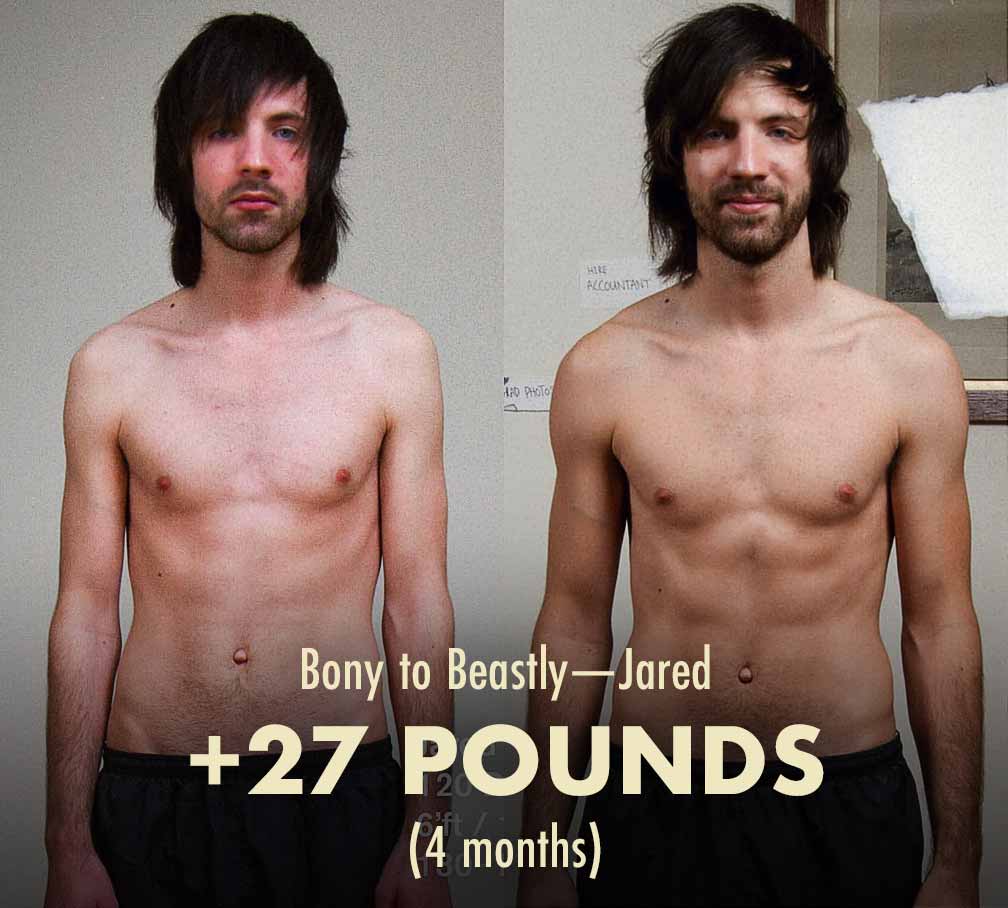
You’ll see a lot of skinny guys who can gain weight quickly and leanly, especially during their first few weeks of bulking. I’ve been one of those skinny guys. I gained twenty pounds during my first three months of bulking, gaining 1.7 pounds per week on average. I didn’t gain a noticeable amount of fat, either. And when I helped my roommate bulk up, he got even better results (pictured above). It doesn’t work well for everyone, though. Gaining 0.5–1 pound per week is a much safer bet if you’re trying to avoid fat gain. That’s a daily calorie surplus of just 250–500 calories.
The Real Problem With Mass Gainers
Mass gainers are good for building muscle and aren’t particularly fattening. They’re a pretty good bulking supplement. The main problem is that they’re ultra-processed. Even with the extra vitamins and minerals added in, you’re not getting the benefits of eating whole foods. You’re not getting phytonutrients, fibre, probiotics, and all of the other things that make real food so nutritious.
If you’re using mass gainers for a short period of time, if you’re using them in relatively small quantities, or if you’re adding them onto a diet that’s already pretty good, then you probably won’t run into any problems.
It’s even better to drink smoothies. Blend up some oats, nuts, berries, yogurt, spinach, flax, and water, milk, or soy milk into a smoothie. You’ll get all of the same muscle-building benefits as you would with a mass gainer, but blending foods doesn’t affect their nutritional value, so you’ll also get the benefits of eating a nutritious meal. Plus, smoothies taste better than mass gainers.
The only problem is that smoothies aren’t quite as quick or portable as mass gainers. I won’t fault you for taking the more convenient route. I’m still grateful to mass gainers for helping me during my earlier bulks. Just keep in mind that there are other options out there that are even better.
Summary
Mass gainers are effective bulking supplements. They’re good for fuelling muscle growth. They won’t make you fat either, provided you aren’t eating too many calories overall.
The best gainer is a smoothie made from whole foods, such as oats, nuts, frozen berries, spinach, yogurt, and milk (or soy milk). That way you can chug down a balanced meal that’s packed full of nutritious calories. If you want to use a store-bought mass gainer for a few months, though, I think that’s probably fine. All of my health markers improved after bulking, even though I used gainers to help me do it.
When you finish your bulk, stop using mass gainers. Try to focus on getting the vast majority of your calories from minimally processed whole foods. Aim for at least 80% whole foods. That way your long-term diet is good for your long-term health.
Personally, I don’t use mass gainers anymore. As I’ve improved my health, my digestive system has gotten stronger. And as I’ve gotten more practice bulking, I’ve gotten much better at eating a diet made up of whole foods. Now I get my extra calories from smoothies and trail mix. And if I eat processed food, it’s something enjoyable, like a piña colada or some bread of the dead. If you can stomach it, that’s what I’d recommend for you as well. Get your extra calories from real food. You’ll get more fibre, vitamins, minerals, probiotics, and phytonutrients, all of which are fantastic for your long-term health.
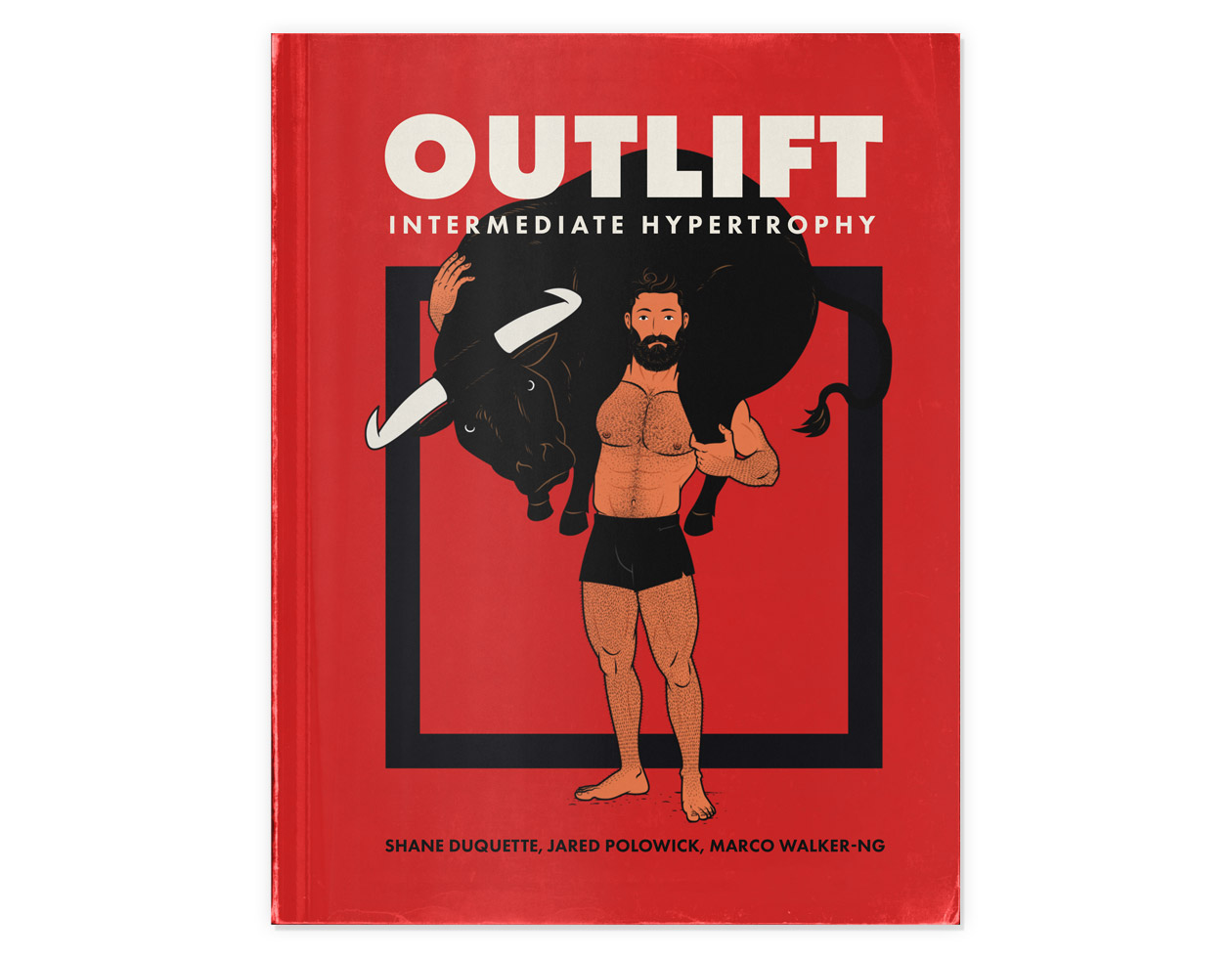
If you’re still skinny or skinny-fat, try our Bony to Beastly (men’s) program or Bony to Bombshell (women’s) program. If you liked this article, you’ll love our full programs. We’ll teach you how to make gainer smoothies, homemade protein bars, energy balls, and all kinds of great bulking snacks and meals. Our programs also include exercise video tutorials, an entire gain-easy recipe book, a full six-month workout program, and coaching in our online community. In that online community, we’ll help you track your progress, adjust the workout routine to suit you better, and answer any questions you have.
Or, if you’re already an intermediate lifter, check out our customizable Outlift Intermediate Hypertrophy Program. It includes a full guide covering the principles of exercise selection and hypertrophy training. And it lets you build your own hypertrophy training program using dropdown menus. And if you want, you get the option to join our online coaching community.
